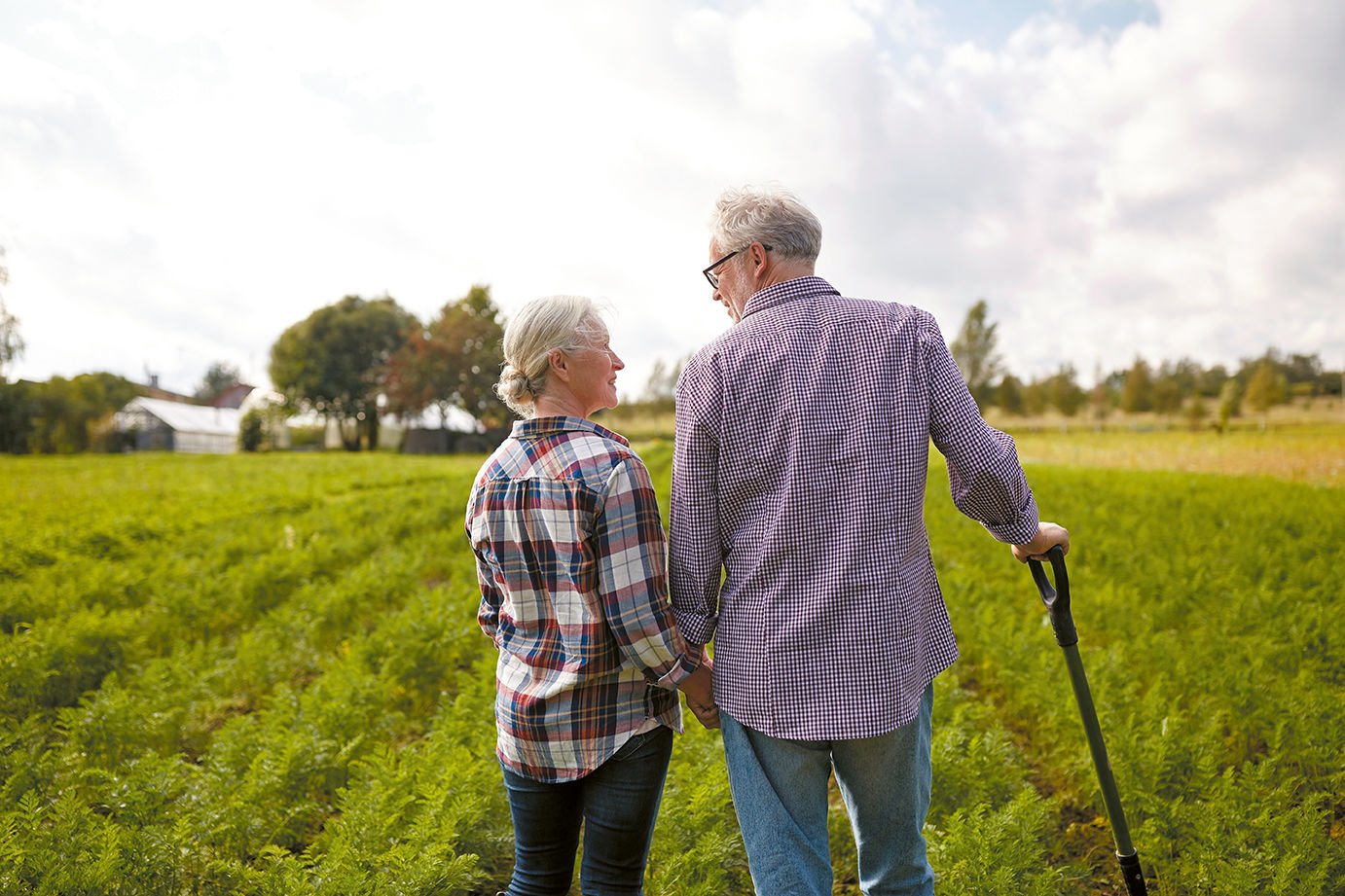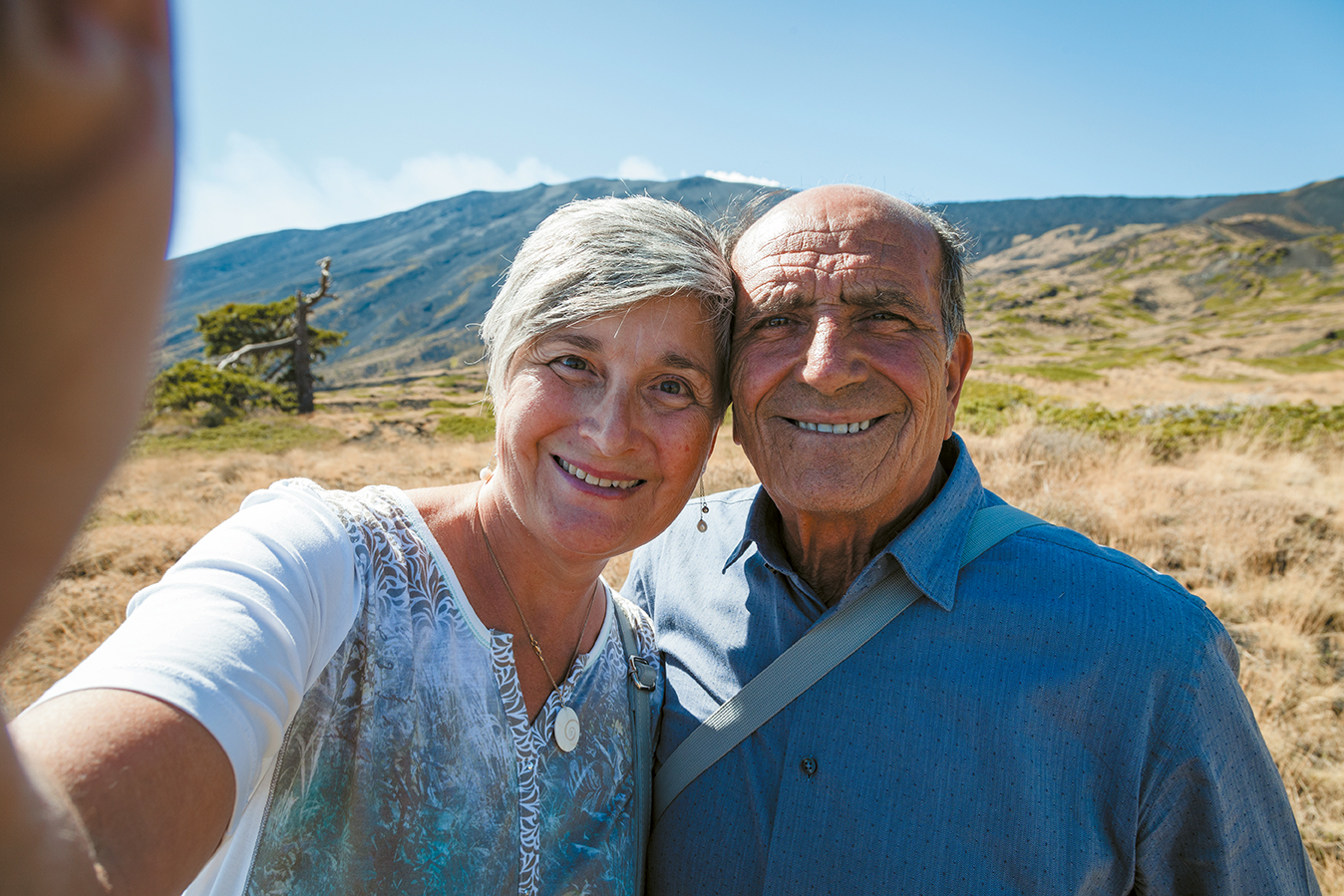Where will you call home?
Downsizing, upsizing, and alternate living arrangements are about making decisions that make sense for you and where you want to call home.
By Nadia Howland

How we choose to live as we grow older is becoming increasingly diverse, with downsizing making space at the table for alternative options such as upsizing, co-living, and dual-country dwelling.
When Jeannie, 62, told her family about her plan to move to the country and build a home and hobby farm, they thought she’d lost the plot.
“My daughter was very upset and she said, ‘Mum, you can’t move to the mountains by yourself. You’ve got no idea about farming and you’ve rented your whole life. This is crazy.’ Jean recalls.
As a single mother of three, Jean had always dreamt of owning her own home and having space for a garden and animals.
“I am semi-retired now and work remotely. A friend told me about a parcel of land for sale near her and her husband, and it was more affordable than anything near where I was living on the coast,” she says.
“I worked with a local builder. The initial plan was to build something small, but I ended up building extra bedrooms with a laundry and kitchenette downstairs so that my children and grandchildren could come and stay.
Upsizing on a single income was a daunting idea initially, but Jean says her cost of living has decreased markedly since moving to the country.
“I grow a lot of my own fruit and veg, and I don’t eat a lot of meat. I do buy mince and bacon from a local butcher, which I freeze in bulk. When you don’t have a supermarket down the road, you learn to be pretty self-sufficient and plan your shops accordingly.
“I have wonderful neighbours nearby and if we need something, we’re always able to help each other out. It’s a really simple, satisfying way of life.
“This may not be my forever home. As I grow older, I will likely need to sell and move closer to my daughters. But for now, it’s exactly what I’ve always wanted and I couldn’t be happier.”
While the idea of communal living might not be new, the modern reinvention of co-living is picking up steam in Australia, according to a recent article in The Guardian.
When two of Lyndall Parris’ friends’ husbands died, leaving them to continue bringing up their children alone, she thought, “This is crazy. I can’t help them much, they’re living in different places. If we were living together in a village, wouldn’t it be easier?” she told the news outlet. Parris began researching alternative living options and built a website to connect with others seeking co-living arrangements.
In 2012, 24 of them pooled their money to buy a 68-hectare plot of land outside Gosford on the New South Wales Central Coast that would eventually become known as Narara Ecovillage.
Narara Ecovillage is one of the many communities around the world that engage in what’s known as collaborative living, where multiple people live together in a shared space.
Today, Narara is home to 250 residents who share lives, front yards, meals, and movie nights. Neighbourly disagreements are settled via ‘listening circles’ while property upkeep is managed through working bees, to which residents must commit at least 52 hours per year.
As Parris aptly describes it, “Nobody comes here if they don’t want to say hello to their neighbours.”
Another co-living, not-for-profit development in Melbourne called Nightingale offers carbon-neutral properties where residents share gardens, laundries, multipurpose spaces, and rooms where visiting friends or family members can stay.
Co-operative living might not be for everyone, but it could appeal to older Australians looking to minimise their footprint and live in a community of likeminded peers.

When Con, 68, and his partner Sally, 70, retired they decided to split their time between the Gold Coast and Catania in Sicily, where Con was born and raised before he and his parents emigrated to Australia.
“My mother was afraid of flying, so my parents never made it back to Sicily to visit,” Con explains.
“When I met Sally and she found out I had dual citizenship, we decided we would go over for three months. We just fell in love with the place immediately. Sicily is beautiful, the people are so friendly and the cost of living is incredibly cheap compared to Australia.”
The couple owns an apartment in Currumbin which they rent to holidaymakers while they’re overseas.
"When we’re in Catania we live in what is essentially a granny flat on a property owned by my cousin,” Con explains.
“Rent-wise it costs us next to nothing. The food in Sicily is incredible. Everything is locally grown and you can live on fresh seafood and produce from the markets for next to nothing. Eating out is cheap as well. We can have a pasta, a fresh salad and a glass of wine at our favourite restaurant for a total of $20 Australian. You couldn’t get lunch at McDonalds back home for that price.”
The best part about living between two countries, Con says, is you can chase the sun and enjoy a year-long summer with friends and relatives all over the world.
“With things opening up here in Australia, we’ve been able to re-connect with our friends and family from down south, which has been long overdue,” he explains.
“We’re heading back to Catania in June and are looking forward to catching up with family and friends. We’ve got friends from Switzerland coming to stay with us, too.”
Con and Sally aren’t the only ones considering a life abroad after retirement.
In fact, it’s something more older Australians are starting to consider, according to researchers with the Queensland University of Technology Entrepreneurship Program, Rob Philipp, Brian Houston, and Andres Rojas.
“While they’ve been spending all this time at home stuck in their houses, they have been thinking about how they’re going to spend the next segment of their life,” says Brian.
“They see this as an opportunity to keep their brains active and do something new.”
The research team say the average Australian has around $160,000 in super at the age of 60, which isn’t enough to guarantee a good quality of life. But living abroad offers them a way to achieve an improved quality of life for less.
“There are some countries that have reciprocal pension programs so that you can actually receive your pension locally over there. As well as the community, transport and accessibility things that people look for,” Brian says.
“In some cases, people may find it’s also a method for recharging their super. Once you retire, your super continues to accumulate interest and investment returns come through. If you take away the pressure of having to live off that and were to live abroad for a period of time, you may find you gain during that period and can return to Australia with more super than you had when you left.”

For Dayyaan, 54, and Meme, 52, raising their teenage sons near the beach in South Australia has been a dream come true. Moving to Australia from Pakistan to pursue a career in medicine meant Dayyaan, an only child, had to leave behind his parents.
“It was hard being separated from them because I felt guilty not being there for them, especially when my father’s health began to decline,” Dayyaan explains. After many years spent trying to bring his parents to Australia, Dayyaan says they have finally been successful.
“In our culture it is customary for grandparents to live with family members instead of going to aged care. It makes sense to us.
“We are doing the opposite to a lot of our friends and colleagues. As their children get closer to university age, they are looking at downsizing. It was surprise to them, I think, seeing us looking for the biggest house we could find,” he laughs.
“With my parents moving in with us, we will have the six of us here under one roof for hopefully many years to come. My sons are both planning to go to university so they will not be moving out of home for a while. It is ideal in many respects as they will be old enough to appreciate the time they have with their grandparents, who they have only visited a handful of times in their life.
“Family is everything to us. It is not an imposition to look after my parents. They gave everything to give me the best life, and now I can do that for them.”
When asked what his parents are most looking forward to about living together, Dayyaan says, “They are excited to see the beach and to spend time with my sons and my wife. My mother wants to teach my wife and my eldest son to cook traditional meals. My father is already asking me for photos of the backyard so he can work out what he is going to plant. They grow everything.”
“Living on a boat enables us to save for repairs, replacements and fuel. We fish, bake our own bread and biscuits, make our own yoghurt and muesli… we try to leave a small footprint.” – Lea P
“We are trying to downsize and have just sold our house. It looks like the Victorian State Government plans to steal about $55k to $60k in stamp duty from us when we buy our new house. We are not planning to buy a mansion, just an average house priced a little above the Melbourne median house price of $1 million. Stamp duty concessions for pensioners only apply for houses priced between $300k and $750k. What sort of house could you possibly buy for $300k? Even at $750k you are going to be buying well below the median house price.” – Bill E
“We shifted out of our five bedroom home as soon as the children moved on. Downsized to 2.5 bedrooms.” – Brian S
“We moved to an over-50s village last year. Everything outside our little townhome is maintained by buildings and services, from the lawns to the wheelie bins. It’s wonderful. We have bought electric bikes and we bike everywhere and have joined all the village social clubs. Absolutely no regrets.” – Karen B
“When we retired we shocked everyone by selling up and moving to Tassie. We live off-the-grid and it is not without its challenges (heating is a pain in winter) but we love it. No more rat run, we live in paradise.” – Laura A

This article is an excerpt from A Life Less Ordinary, featured in the Winter 2022 issue of National Seniors Australia’s quarterly member magazine, Our Generation.
Become a member today and receive four free hard copy issues of Our Generation (valued at $31.96) a year as part of your membership, along with exclusive discounts, competitions, branch membership and more!
Your membership directly funds our advocacy and research work that benefits older Australians including fixing pension poverty, tackling health care costs, and improving aged care.




